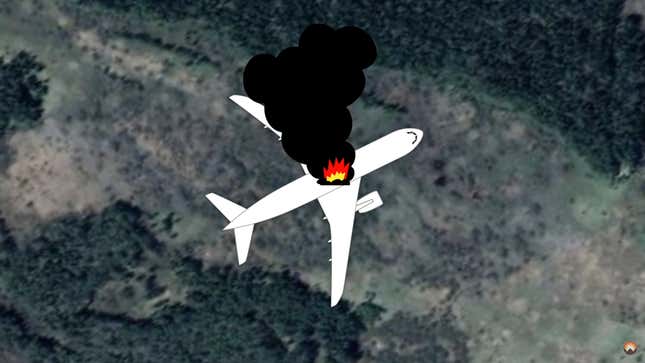
Trigger warning: if you’re not a fan of flying, the following video explains how nearly once every three days, a large commercial jet crashes, a tenth of which resulted in fatalities over the last decade. While that’s considered a safe statistic, it means airlines need a protocol for when it happens.
The latest Wendover Productions, um, production is a video overview on how an airline reacts when one of its planes crashes.
Of those previously-mentioned fatal crashes, a majority of passengers survived the 112 “fatal” crashes recorded over the last decade, just to extinguish some of the anxiety I opened with. Most incidents happen during takeoff or landing, as runway “events” account for 90 percent of all airline crashes, of which 25 percent are fatal. Most fatalities occur in smaller statistics.
The tragedy of airline accidents and the irrational fears they produce in millions of people have made the airline industry the most strictly criticized and safety-crazed transportation method. At this point, airlines recognize that a crash is, at least for now, still inevitable if your business sticks around long enough, as every major airline today has shared the experience.
A crisis response team at an airline can be comprised of up to hundreds of people, typically with multiple roles alongside their everyday job who are trained to mobilize in the event of a crash. They’ll be sent to the crash site with a Go Kit, including tools, generators, rations, and communications equipment.
There are typically three areas, with the response teams broken up into crisis support operations, where they’re hands-on with ground authorities to investigate the site itself, humanitarian support, or those focused on the human impact of the event, and then, of course, the communications team, which you couldn’t pay me a million dollars to do. But they’re supposed to control the stream of information to all parties involved without any wires getting crossed.
A recent example of an incident was the engine explosion of Southwest flight 1308's left engine after a departure from LaGuardia Airport. One passenger was killed by shrapnel, and the airline immediately took responsibility. They paid out cash to every passenger, issued an apology, and suspended their marketing campaigns, mostly to good effect.
Rather than draw out the narrative, the story swiftly moved out of the headlines, and thus the public psyche. Southwest lost a lot of customers and hundreds of millions of dollars, ultimately, but it could have been far messier and far worse if it’d tried to extend the presumption of guilt on another party.
I’ve never had an issue with flying, which I’m thankful for, but I know I won’t be getting a plane for other reasons anytime soon, regardless.